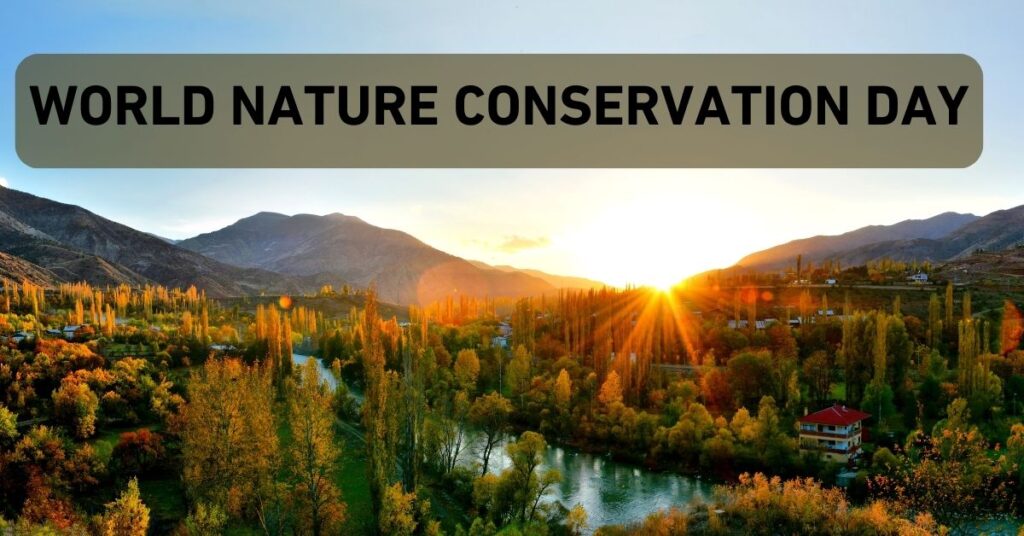Today is World Nature Conservation Day!
World Nature Conservation Day is celebrated on July 28th each year to raise awareness about the urgent need to protect and conserve our natural resources and environment. This day serves as a global reminder of the delicate balance between human activities and nature and emphasizes the responsibility we all share in safeguarding our planet for future generations.
The History of World Nature Conservation Day:
The origins of World Nature Conservation Day can be traced back to the 1972 United Nations Conference on the Human Environment held in Stockholm. During this conference, world leaders recognized the importance of protecting the environment and fostering sustainable development. In response to growing environmental concerns, the concept of World Nature Conservation Day was born, aiming to mobilize individuals and communities worldwide to take collective action in preserving the Earth’s biodiversity.
India’s Biodiversity: A Precious Heritage:
India is a country blessed with rich biodiversity, boasting a vast array of ecosystems, wildlife, and natural landscapes. From the majestic Himalayas to the diverse flora and fauna in its tropical rainforests, India’s natural heritage is a source of pride and wonder. However, rapid industrialization, urbanization, and unsustainable practices have put immense pressure on the country’s ecosystems, leading to habitat destruction and loss of biodiversity.
The State of Nature Conservation in India:
While India has made significant strides in environmental conservation, numerous challenges persist. Deforestation, pollution, climate change, and the illegal wildlife trade continue to threaten the delicate balance of nature. The Indian government, along with various non-governmental organizations and environmental activists, has been working tirelessly to address these issues. But it is a long journey before we call it done.
Key Initiatives for Nature Conservation:
1. Forest Protection and Afforestation
Preserving and expanding forest cover is vital for safeguarding biodiversity. Through afforestation and reforestation efforts, we can create sustainable habitats for wildlife and mitigate the impact of climate change. Participating in tree-planting drives and supporting forest conservation projects can significantly contribute to this cause.

2. Promoting Sustainable Practices
Sustainable practices, such as responsible waste management, water conservation, and energy efficiency, play a crucial role in reducing our ecological footprint. Embracing eco-friendly habits in our daily lives can make a tangible difference in preserving natural resources.

3. Wildlife Conservation and Anti-Poaching Measures
Protecting endangered species from poaching and illegal trade requires concerted efforts. Supporting wildlife conservation initiatives and raising awareness about the consequences of wildlife trafficking are essential steps in preserving India’s unique fauna.
Also Read: Chandrayaan 3 Embarks on a Lunar Odyssey, Unraveling Celestial Enigmas
On World Nature Conservation Day, let us reaffirm our commitment to protect and preserve the natural wonders of India and the world. By understanding the significance of this day, the history behind it, and the current state of nature conservation in India, we can collectively work towards a more sustainable future. Through individual actions and collaborative efforts, we have the power to create a positive impact and leave a legacy of environmental stewardship for generations to come.
Together, let us embrace the responsibility of being caretakers of our planet and celebrate every day as World Nature Conservation Day.


